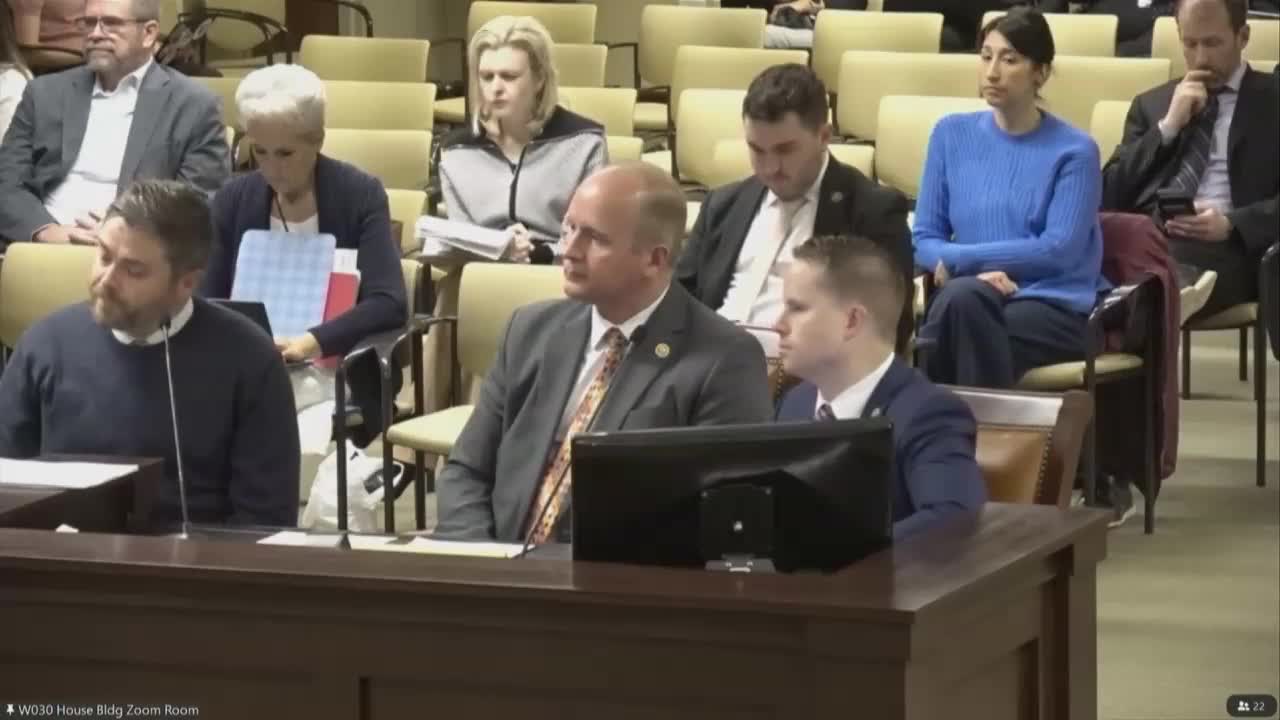Committee advances bill letting parties access voter names while requiring single mail notice before privacy change
Get AI-powered insights, summaries, and transcripts
Subscribe
Summary
The House committee voted unanimously to advance third substitute House Bill 270, which would allow political parties to obtain voter names from party lists, require a single mailed notice before privacy-status changes in voter rolls, and defer broader implementation until March 2027.
The House Rules Committee on a voice vote advanced third substitute House Bill 270, a measure that would change how voter registration privacy status is handled and allow political parties access to voter names for party functions.
The bill would let political parties obtain voter names from party-held lists and would require the lieutenant governor to mail a single notice to voters whose registration privacy status will change. The legislation schedules the privacy-status change to take effect in March 2027 to coincide with a planned new voter-registration system.
Supporters argued the change is necessary to restore routine party operations. Mary Anne Christiansen, executive director of Utah Legislative Watch, said, "I always support personal property rights, but for many years, we've been going the wrong direction in this one area…this reset that's going to happen with the new voter system will it's completely prudent and appropriate." Chris Null, chair of the Salt Lake County Republican Party, told the committee the party cannot currently contact many of its members: "At least 20% in Salt Lake County, we don't even know who they are," he said, urging passage to improve party engagement.
Committee members pressed sponsors on penalties, notice timing and equitable access for nonpartisan races. Representative McPherson asked whether the bill's language that creates a class A misdemeanor (lines 1658–1673 of the draft) was new; a sponsor's representative said the provision mirrors existing penalties tied to misuse of similar data. The sponsor's team also said the statute requires parties to use industry-standard security procedures and to have recipients sign limited-use acknowledgements before receiving data.
Committee members asked how at-risk voters would be notified. The bill requires a single mailed notice; the sponsor's staff said the March 2027 implementation date was chosen so the notice effort could coordinate with the rollout of a new statewide voter-registration system that will assign new voter identification numbers and reduce fiscal costs. Staff said some records already designated "at risk" would remain unchanged; in one county staff cited in committee, about 200 such records exist.
Lawmakers also raised concerns that party access to names could advantage affiliated candidates in so-called nonpartisan municipal or school-board races. A committee presenter described the bill's data split: unaffiliated candidates and public requesters would receive a voter ID number, address, party affiliation and vote history (but not names), while political parties would additionally receive names for party purposes. "There is a possibility of that" advantage, the presenter said, "but we believe it is in the best interest of the citizens of the state of Utah to only release the information that is necessary."
Public commenters included precinct and county party leaders who supported the bill as a way to restore internal party functions, and at least one party official urged that criminal penalties be handled through internal party discipline where possible to avoid discouraging volunteers from using lists.
On the committee floor the maker of the motion moved to adopt the third substitute and then moved that the committee recommend the bill favorably. The committee approved the substitute and then passed the bill out of committee by voice vote; the committee chair announced the passage as unanimous.
The bill now goes to the House floor for further action.
